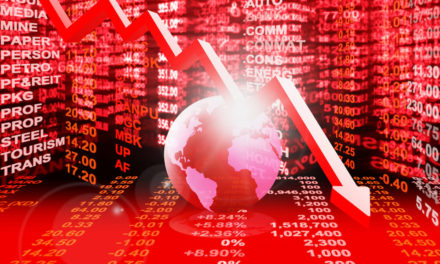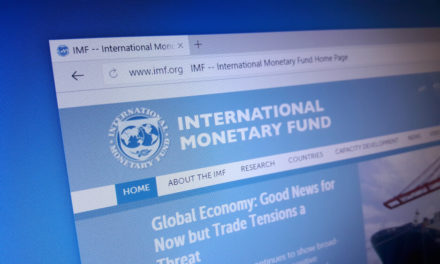U.S. stock indexes found their footing after a sharp early loss and managed a mixed finish.
Technology companies sank for the third day in a row Monday. Adobe lost 3.2 percent. Financial companies did well. Chubb rose 1.3 percent. Arconic jumped 7 percent following a Reuters report that a group of private equity firms wanted to make a bid for the company.
Stocks got off to a weak start following some big declines late last week. European markets dropped as Italy said it would ramp spending.
KEEPING SCORE: The S&P 500 index fell a point to 2,885 at closing time. It fell 1.5 percent over the previous two weeks. The Dow Jones Industrial Average was gained 40 points, or .2 percent, to 26,487 after reversing an early loss of 223 points.
The Nasdaq composite lost 53 points, or 0.7 percent, to 7,736. The Russell 2000 index was unchanged at 1,632. The Nasdaq and Russell are each coming off their worst week since late March.
Trading on Wall Street is lighter than usual because of the Columbus Day holiday. Low trading volume can sometimes lead to large swings in the market.
TECH STOPPED: Technology companies fell further. Salesforce fell 3.8 percent to $149.16 and Alphabet, Google’s parent company, fell 1 percent to $1,156.05 after it said the profiles of as many as 500,000 Google Plus accounts were exposed by a bug. The company said it is ending Google Plus for consumers.
Payment and credit card companies took especially sharp losses. PayPal retreated 2.5 percent to $81.13 and Mastercard fell 2.3 percent to $208.40.
THE QUOTE: Kristina Hooper, chief global market strategist for Invesco, said investors are concerned that the U.S.-China trade dispute will get worse and will hurt technology companies as the Trump administration wraps up trade negotiations with Mexico, Canada and Korea.
“The U.S. has made very significant concessions, and I expect them to do that with Japan as well,” she said. “I don’t believe it’s going to make concessions with China.”
EUROPE: Italy’s deputy premier vowed to press ahead with a plan to increase spending and the country’s deficit after the European Commission expressed “serious concern” about the notion.
Italy’s FTSE MIB dropped 2.4 percent and Italian bond prices dropped, sending yields higher. Germany’s DAX fell 1.4 percent and the CA 40 in France sank 1.1 percent. In Britain, the FTSE 100 fell 1.2 percent.
The euro sank to $1.1488 from $1.1525.
COLD STREAK: Amazon fell 1 percent to $1,871.54. On Sept. 4 the stock peaked at $2,050.50, which brought Amazon’s market value to a peak of $1 trillion during the day. But it quickly turned lower and has fallen 8 percent since then, its worst slump in six months. Still, the stock has climbed 60 percent this year.
BRAZIL BOUNCE: Brazil’s main stock index staged its biggest rally in two and a half years, jumping 5 percent, and was on track for its highest close since May after far-right candidate Jair Bolsonaro led the first round of presidential voting by an unexpectedly wide margin. He’s now the favorite in the final election later this month.
Bolsonaro has repeatedly said he doesn’t understand the economy and has also spoken approvingly of Brazil’s 1964-1985 dictatorship. But business leaders and financial markets approved of Bolsonaro’s choice of an esteemed banker as head of his economic team and a fear of the left-leaning policies of the Workers’ Party.
BONDS: Bond markets were closed. The yield on the 10-year Treasury note, an important benchmark for mortgages and other types of long-term loans, jumped to 3.22 percent last week. That’s its highest in more than seven years and it’s given a boost to bank stocks.
High-dividend stocks rose Monday. Those stocks are often treated as an alternative to bonds because of their large payments to shareholders, which are similar to the yields from bonds.
Real estate investment trust Crown Castle International gained 1.5 percent to $110.41 and Coca-Cola climbed 1.3 percent to $46.47. The big increase in bond yields sent the stocks lower last week.
ASIA: Beijing injected money into its cooling economy by reducing the level of reserves banks are required to hold, and its central bank told Chinese banks to lend more to entrepreneurs. Chinese leaders are trying to shore up economic growth that began to cool after Beijing tightened lending controls last year to rein in a debt boom. A tariff fight with U.S. President Donald Trump has added to downward pressure on growth.
Hong Kong’s Hang Seng retreated 1.4 percent and the Kospi in South Korea fell 0.6 percent. Japanese markets were closed for a holiday.
The dollar fell to 112.98 yen from 113.73 yen late Friday.
COMMODITIES: Benchmark U.S. crude slid 0.1 percent to $74.29 a barrel in New York and Brent crude, used to price international oils, dropped 0.3 percent to $83.91 a barrel in London.
Wholesale gasoline rose 0.4 percent to $2.09 a gallon. Heating oil inched up 0.1 percent to $2.39 a gallon. Natural gas jumped 3.9 percent to $3.27 per 1,000 cubic feet.
Gold lost 1.4 percent to $1,188.60 an ounce and silver slipped 2.2 percent to $14.33 an ounce. Copper rose 0.1 percent to $2.77 a pound.
© The Associated Press. All rights reserved.




